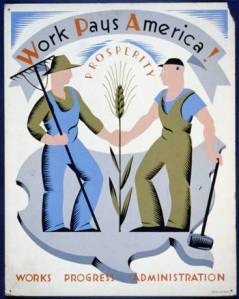 Squadratomagico has an interesting post (and discussion in the comments) about patriarchy: What is it? Where does it come from? And perhaps most urgently, who’s enforcing it? She writes:
Squadratomagico has an interesting post (and discussion in the comments) about patriarchy: What is it? Where does it come from? And perhaps most urgently, who’s enforcing it? She writes:
What is at stake when a rhetorical dichotomy between “patriarchy” and “women” is posited? The way this opposition is used seems to me to suggest the following things:
1. If “patriarchy” and “women” are on opposite sides of a dichotomy, then patriarchy must be an all-male thing.
2. Thus, women are not a part of patriarchy, but fall somewhere outside it. Women may be acted upon by patriarchy in ways that either victimize or benefit them (depending on the women’s status and position vis-a-vis particular men), but they do not themselves perpetuate patriarchy, participate in it, or drive it.
3. If a woman suggests that women sometimes do perpetuate, participate within, or drive patriarchy, then she herself is acting as an agent of patriarchy by blaming women and undermining female solidarity, rather than attacking the real enemy, patriarchy, which is composed of men only. Oh, but wait: huh? Please review the tendentious aspects of this reasoning. I think it boils down to this: women are not part of patriarchy, except when the commenter disagrees with said women. In that case, indignantly accusing your opponent of being an agent of patriarchy, or of “blaming women,” is a convenient means of bludgeoning them into silence while declaiming your own impeccable feminist credentials as a supporter of women. Hence, the tactic poses a false dichotomy between “blaming women” versus “supporting women,” while simultaneously defining debate itself as inherently divisive.
4. Following upon the previous point: feminist politics, for these commenters, appears to be predicated upon strict solidarity for both sexes. The feminist first principle is for women to stick together without dissension or debate, in order to best advance their own collective interests, which are presumed to be self-evident. Feminism thus conceived constitutes a neat counterpoint to patriarchy which, as we already have seen, is presented as an all-male formation existing to best advance men’s collective interests.
I especially like that point in #2: talking about patriarchy this way erases the complexity of patriarchy (and not incidentally, women’s agency too). We don’t think this way about other systems–capitalism, or colonialism, and divide the entire world arbitrarily into either victims or agents thereof. Why do this with patriarchy? Continue reading


 Happy Labor Day! One of the interesting things about this Labor Day is that
Happy Labor Day! One of the interesting things about this Labor Day is that 

 Let’s all give the faculty of the University of Illinois a round of applause for standing up for academic values over commercial values!
Let’s all give the faculty of the University of Illinois a round of applause for standing up for academic values over commercial values!  Lost in a haze of California wild fire smoke! I took this photo from my dashboard with my cell phone camera as I drove West to work today. Ordinarily on a cloudless September morning I would see a whole swath of the snow-capped Rocky Mountains behind the lower shadows of the foothills as the sun rose. As you can see–or can’t see–I got nothin’ today or yesterday, and the haze was clearly perceptible in the late afternoon yesterday just walking around town. The darker mass of foothills is apparent, but above that is just a haze of smoke. A few bits of snowy peaks might periodically emerge–but otherwise, it looked like I was driving across northern Indiana.
Lost in a haze of California wild fire smoke! I took this photo from my dashboard with my cell phone camera as I drove West to work today. Ordinarily on a cloudless September morning I would see a whole swath of the snow-capped Rocky Mountains behind the lower shadows of the foothills as the sun rose. As you can see–or can’t see–I got nothin’ today or yesterday, and the haze was clearly perceptible in the late afternoon yesterday just walking around town. The darker mass of foothills is apparent, but above that is just a haze of smoke. A few bits of snowy peaks might periodically emerge–but otherwise, it looked like I was driving across northern Indiana. 
